I for one am no expert on money, other than to use it as a means of trade. I do know basic things, like spend within your means and Make saving for a rainy day a habit. But the past couple of years has had many people wondering about their future, to include my family.
Never in the history of this country has there been so much money in circulation, the Fed continues to print more and more in an attempt to get the economy rolling. What I have always understood about the printing of money, was that if one prints to much we get inflation. With the hockey stick effect on the monetary charts we are already seeing some inflation. But from what I can understand about this subject is what all the so called experts say.
Who one listens to on the matter will depend on what they want to believe, I for one believe that taking what the Fed or the government agencies say is to believe you want to see a brighter picture. On the other hand there are those that don't get a paycheck from the tax payer and make their living much like the rest of us. They either work for someone else or for themselves and they paint a much different picture. What the Fed says and what they do are conflicting. So one is left to weigh in on the facts, and the only way one could do this is to look at history. In 1923 we see Germany trying to pay its war debts; they don't have the money, so they fire up the printing press and print it. Over the course of sometime the money becomes worth less, and finally to the point of being worthless.
Hyperinflation is what it is called, I have been hearing about this for quite a while now and the conclusion that I have come up with, is we are heading down that road. They have printed way too much and the value of the Greenback is declining. In Germany it took a wheelbarrow load of money to buy a loaf of bread! Can you imagine going to the store with a wheelbarrow full of money to buy a loaf of bread? Many economists are saying we will be seeing inflation rates of 20% to 30% over the next two or three years, and food prices are going to jump 10% in the new year. I believe them, we have been seeing it now for the past couple years and nothing leads me to believe it will stop any time soon.
We have reached the point of big spending in this country and it is breaking us. We need to return to more conservative ways of living and stop looking at what the Jones’s have. We need to hold our elected to accountability, from our communities, our states and in Washington!
But now that the damage is done, and we wait for what comes next. What do we do to be ready for the day we can't afford a loaf of bread? We again have to look back at history. We need to bring back what our Grandparents knew while they were raising their families during the depression.
Many people lived on farms during the Depression which softened the blow as far as food was concerned. They could grow the food they needed and didn't have to go to a grocery store for every single morsel to feed their families ate. How many people do you know today that can grow most of their own food including fruits, vegetables, eggs, chickens, milk, pigs, cows, etc.? The things that I remember my Grandmother saying was they conserved like it was gold, coffee, tea, sugar and salt. No one was a picky eater; the children ate what was put in front of them. The skills to acquire food were part of the fabric of life. Berry picking in the summer, foraging for nuts in the fall, growing food, processing food (i.e.: smoking meats, canning vegetables and fruit, making cheese), fishing, and hunting were skills that every kid learned from his parents and grandparents.
Skills in general were used to do a lot of work with very little material goods. Clothes were washed by hand; fertilizers were made at home (thanks to the cows, horses, pigs and chickens) and were not purchased. Work shops were on every farm, repairs to equipment were something everyone did for themselves or was bartered for. Bartering was quite common and thoroughly used.
They didn't use much credit back then. Granted some people received credit for various purchases (house, car, farm machinery, etc.) but it was a BIG deal. You didn't sign a paper and wait for a shiny card to arrive in the mail. The banker had to know you, your parents, your grandparents, and practically receive the title to your first born before you would be given credit to purchase what you needed. With credit so easy to receive today, much of the population is up to their eyeballs in debt, setting themselves up and their lenders for bankruptcy at the slightest financial glitch. Easy credit plays the biggest roll in our current economy, I have said it before when you borrow money, you are borrowing against an uncertain future.
They didn't have the bills that we have today. Today's bills include: gas, electricity, water, garbage, sewer, cell phone, home phone, cable TV, and Internet (not to mention the housekeeper, yard guy, car wash, and all of those other "have to have" services that we take for granted). My grandparents never had electricity and didn't have a phone or TV, They cooked with Grandma's wood stove and heated the house with wood. Water was from the brook that ran past the house, garbage was processed on their land, burned, recycled, composted or tossed over a bank in an out of the way place. The sewer was an outhouse and there were no cell phones, DSL, or cable. Grandma was the housekeeper, grandpa was a farmer and worked for the rail road, and the kids were the farm hands and did allot to help out.
They always ate at home and if they would be away from home at meal time, they packed up their food and took it with them. They also rarely went shopping unless it was for necessities. It normally involved a whole day to get to Rutland and back with the team and the wagon, the trip was made twice a year. Though Ludlow would be closer for simple things but that would take half a day round trip and the bulk purchased to get through summer or winter was available in Rutland. As it was told to me by my Father while I was growing up.
They didn't spend their money unless it was necessary. A yard of fabric would be made into a dress, grandma would add ruffles to keep the dress wearable as the owner grew, the dress would then be passed down to the next sister and the next, when it grew threadbare in places it would then be cut up into quilt squares or used for rags or doll clothes. I wonder how many clothing items are in the average closet or burrow today that either are still hanging in the closet with the tags on or, worse, were worn once and since it wasn't liked it got tossed into the Goodwill bag? Next time you go shopping, consider whether the items in your basket are absolute necessities or just stuff you want.
Life revolved around community connections. If more work was needed than one man could do, friends and neighbors would show up and help, knowing they could expect the same help in return. Families were closer and friendships were lifelong. How many people do you know would welcome grandpa or grandma into their house to live with them for their final years? It's no secret that nursing homes and retirement communities are such big business. How many parents today would know how to deal with their children if the electricity was out for any length of time? Many parents rely on the TV, Internet, texting, and video games to keep their kids quiet, socialized, and entertained.
They made money at anything possible. If they needed money, they didn't turn to credit, they turned to work; they had the skills and ingenuity that could be used to make money or would barter work for something. My grandpa worked three days with his team on the roads one year to pay off his tax bill of $4.00 as it is read in an old town report. Many men did the same thing. Why? Because money was tight and sometimes just wasn't there. How many towns would do that today?
Although we are so "advanced" technologically, economically, and socially compared to decades past, it is very important that we all re-develop the basic skills that our grandparents had. These skills will be necessary to survive should the economic infrastructure, which we have come to rely on should suddenly disappear. As the current economic situation looks turning back to these skills is more than likely going to happen for many, and it's only a matter of time.
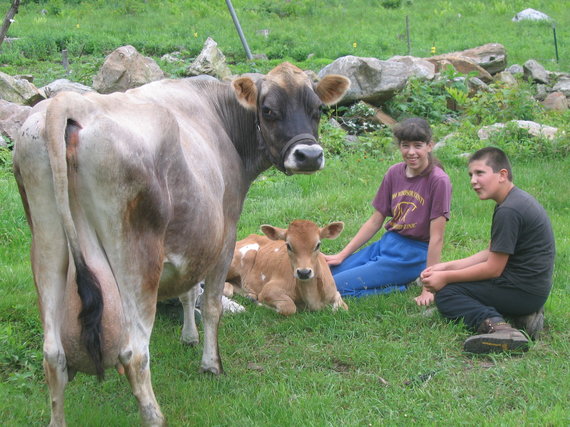









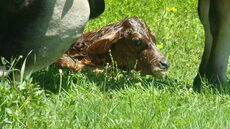


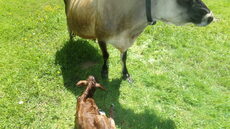
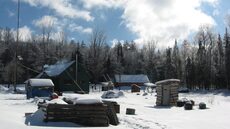
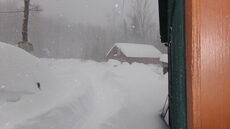

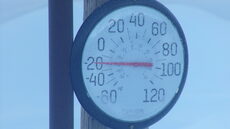







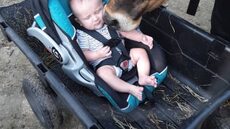
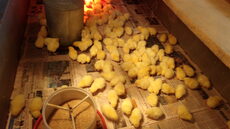
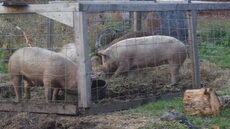



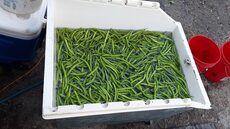



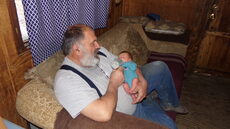







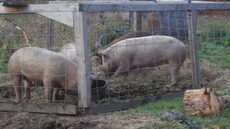

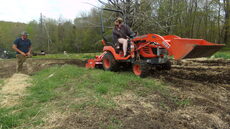
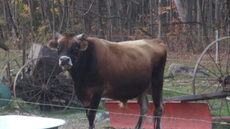


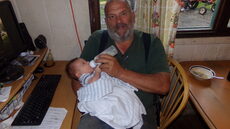




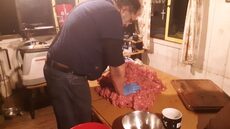



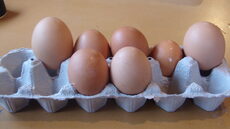

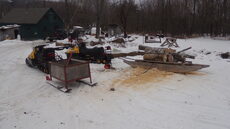

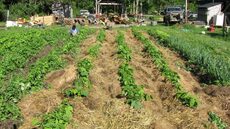

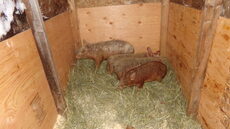
Comments